This smart toilet can read your anus like a fingerprint, say scientists
By Aaron Holmes
Scientists at Stanford University have developed a smart toilet that can identify people based on their butt and monitor the health of their poop and pee. 
If you’re looking for very, very personalized data about your bathroom habits, look no further.
The smart toilet, which the Stanford team published an article about this week in Nature Biomedical Engineering, was designed as a continuous health monitoring device, like a smart watch. It uses cameras and motion sensors to identify “a range of disease markers in stool and urine,” including colon cancer and prostate cancer.
 “When I’d bring it up, people would sort of laugh because it seemed like an interesting idea, but also a bit odd,” lead researcher Sanjiv Gambhir said in a press release.
“When I’d bring it up, people would sort of laugh because it seemed like an interesting idea, but also a bit odd,” lead researcher Sanjiv Gambhir said in a press release.
“Everyone uses the bathroom — there’s really no avoiding it — and that enhances its value as a disease-detecting device.”
It also has a built-in identification system. The smart toilet’s flush lever is equipped with a fingerprint reader, and cameras in the toilet bowl can identify people’s butts.”We know it seems weird, but as it turns out, your anal print is unique,” Gambhir said.
The toilet’s still in early stages and isn’t meant to replace a doctor or diagnosis, but rather to alert users to red flags that could warrant medical attention. Here’s how it works.
The smart toilet uses multiple pressure and motion sensors to detect when someone’s about to use it, and identifies them with biometrics.
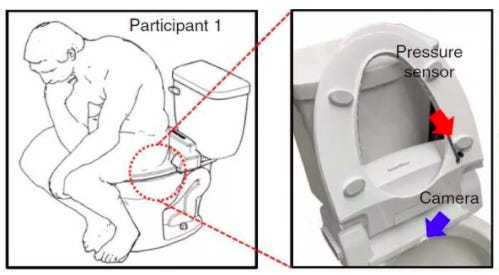
The toilet then sends the data it collects to a cloud server.
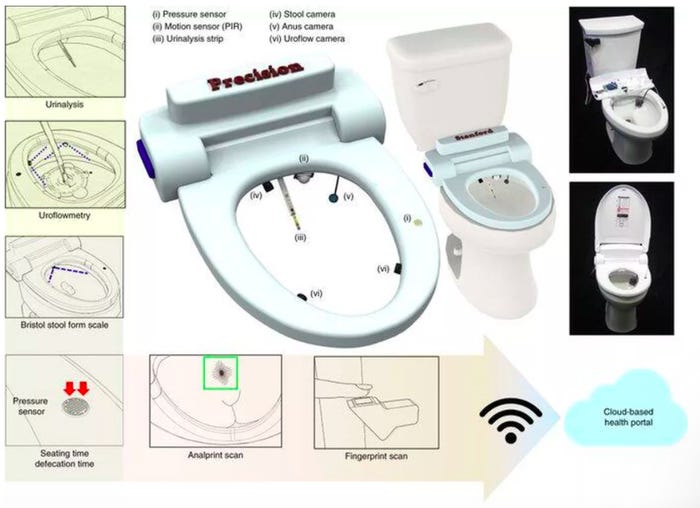
“The smart toilet is the perfect way to harness a source of data that’s typically ignored — and the user doesn’t have to do anything differently,” Gambhir said.
Stool samples are recorded on video and analyzed by algorithms that identify abnormal stool consistencies.
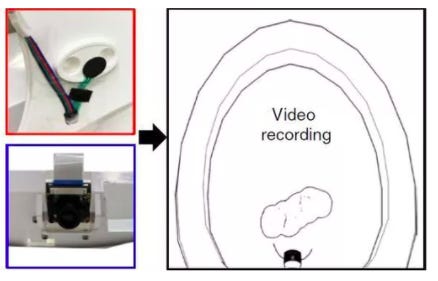
Urine is also analyzed by algorithms that monitor “flow rate, stream time and total volume.”
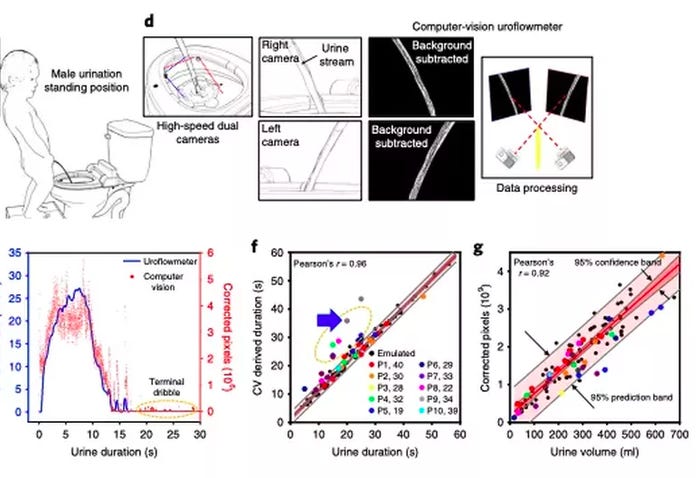
So far, the toilet has been tested on 21 participants. Stanford researchers also surveyed 300 prospective participants, and 52% said they were at least somewhat comfortable with the idea.
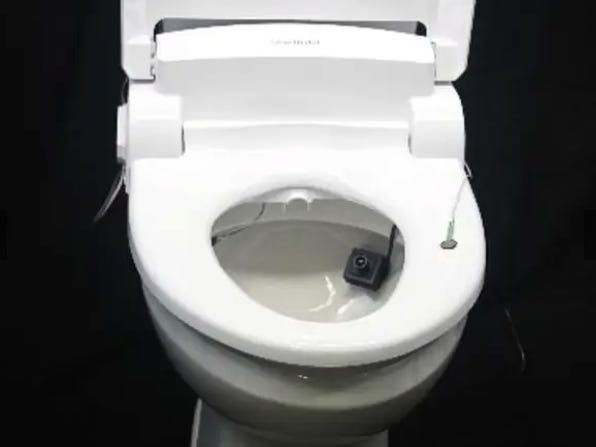
“To fully reap the benefits of the smart toilet, users must make their peace with a camera that scans their anus,” Stanford’s press release says.
________________________
Credit: Business Insider

















